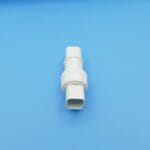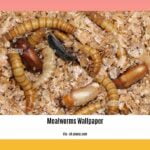Recent social media posts have sparked widespread concern, claiming that Maruchan Ramen noodles are being recalled due to deadly bacteria and linking the product to the deaths of five children. We understand that rumors about food safety can be alarming, so we’re here to set the record straight. These claims are false and have been debunked by both the Centers for Disease Control and Prevention (CDC) and the Food and Drug Administration (FDA). Let’s break down the facts and address the misinformation circulating online.
Debunking the Maruchan Recall Rumors
The current wave of panic appears to originate from a misinterpretation of several unrelated incidents, amplified by the rapid spread of information on social media platforms like TikTok. One video mentioning recalls has been shared over 170,000 times, demonstrating the speed and reach of online misinformation.
What Actually Happened?
- No Current Maruchan Recall: The FDA has confirmed that there is no current recall of Maruchan Ramen products related to bacterial contamination. You can verify this information yourself by checking the FDA website.
- Sun Noodle Recall (May 2024): A voluntary recall did occur, but it involved Sun Noodle, a Hawaii-based company, and their “S&S Cup Saimin” product. This recall was due to undeclared egg white powder, a potential allergen, and not bacterial contamination. This incident has likely fueled the confusion surrounding Maruchan.
- Other Allergen Recalls (Early 2023): Several ramen brands, not including Maruchan, were subject to recalls in early 2023 due to undeclared allergens in various snack foods. These recalls are also distinct from the current rumors.
- 2019 Veggie Ramen Recall: A separate, unrelated incident in 2019 involved a veggie ramen recall due to hard-boiled eggs potentially contaminated with listeria. This historical event has no bearing on the current situation with Maruchan.
Separating Fact from Fiction on Social Media
Social media can be a powerful tool for sharing information, but it’s also a breeding ground for misinformation. It’s important to be skeptical of sensational claims and verify information from credible sources. Think critically: does the post cite verifiable sources? Does it link to official announcements from the FDA or CDC? If not, proceed with caution.
Addressing Maruchan Ramen Safety and Nutrition
Beyond the recall rumors, some questions exist around the general safety and nutritional value of Maruchan Ramen. Let’s address these concerns:
Is Maruchan Ramen Safe to Eat?
Yes, Maruchan Ramen is likely safe to eat when prepared according to package directions. The 2024 voluntary recall, which did not involve bacterial contamination, has been resolved. Always check the packaging for any signs of damage or tampering before consumption. If you suspect you’ve eaten contaminated food of any kind, immediately consult your doctor or local health authority.
Is Maruchan Ramen Healthy?
While convenient and affordable, Maruchan Ramen isn’t a health food. It’s generally low in essential nutrients and high in sodium. Some varieties contain over 1000mg of sodium per serving, over half the recommended daily intake. Consistently high sodium intake may increase the risk of health problems like high blood pressure.
Tips for Healthier Ramen Consumption
- Cook Thoroughly: Always cook noodles completely as instructed on the package. Undercooked noodles made from uncooked flour can, in rare cases, contain bacteria. Proper cooking eliminates this risk.
- Boost Nutrition: Add vegetables like spinach, carrots, or mushrooms for added vitamins and fiber. Include a protein source like cooked chicken or tofu.
- Moderate Consumption: Enjoy Maruchan Ramen as an occasional treat, not a daily staple.
Ongoing research suggests a link between regularly consuming highly processed foods like instant noodles and certain health risks, though the science is not yet definitive. Stay informed about evolving nutritional science and adapt your eating habits accordingly.
Clarifying the Maruchan Soy Sauce Ramen Situation
Some consumers have noticed changes and availability issues with Maruchan Soy Sauce Ramen, leading to further confusion.
The Name Change
The “Oriental” flavor was renamed “Soy Sauce” to remove an outdated and potentially offensive term. This is simply a name change, not a new product or recipe alteration.
Supply Chain Issues
Temporary shortages of Maruchan Ramen, including Soy Sauce, were caused by supply chain disruptions related to the pandemic and its aftermath. This was not a discontinuation of the product.
Addressing Recall Confusion
The early 2024 recall did not include Soy Sauce Ramen. Rumors of bacterial contamination in this flavor are unfounded.
Staying Informed About Food Safety
The FDA and CDC websites are the most reliable sources for food safety information. Bookmark these sites and check them regularly for accurate updates on recalls and safety alerts. Don’t rely solely on social media for information about food safety, which can spread misinformation rapidly. By staying informed and critically evaluating information, you can make informed decisions about your food choices and avoid unnecessary anxiety. Indulge in the sweet nostalgia of the old german bakery fredericksburg and experience the captivating acoustics of the renowned meymandi concert hall.
- Red Cloud, NE: Discover Willa Cather’s Legacy - April 11, 2025
- Remember Old Social Media Sites? Their Rise and Fall - April 11, 2025
- How many days till Feb 3?Accurate Countdowns & Tools - April 11, 2025
















